Maternal-Fetal Medicine
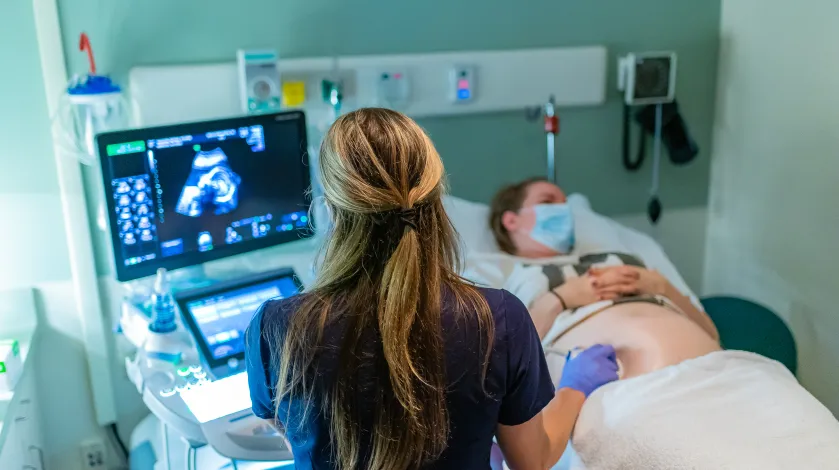
South Shore Hospital's Maternal-Fetal Medicine (MFM) Program assists patients whose pregnancy may be affected by their age, chronic health condition, multiple gestation, fetal abnormalities and other medical issues. We are an outpatient department providing ultrasound and consultation to patients on the South Shore. We work collaboratively with primary obstetric care providers to provide consultation regarding pregnancy management.
The Maternal-Fetal Medicine Program at South Shore Hospital is designed specifically for patients with high risk pregnancies, although patients without high risk issues are seen in our unit. Our comprehensive service includes the latest in maternal and fetal screening, diagnostic testing, level II ultrasound, fetal echocardiogram and consultative services.
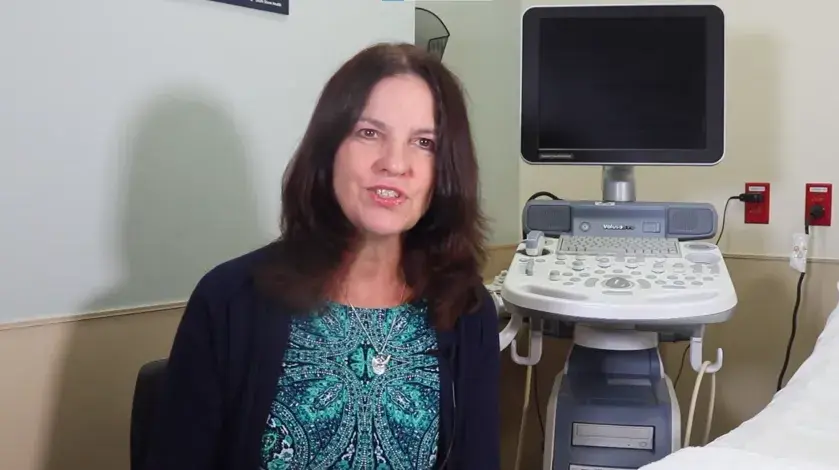
Maternal Fetal Medicine Care Team

Achilles M Athanassiou, MD

George M Graham, MD

Teresa Marino, MD

Barbara M O'Brien, MD

Karen E O'Brien, MD, BS, DMSc
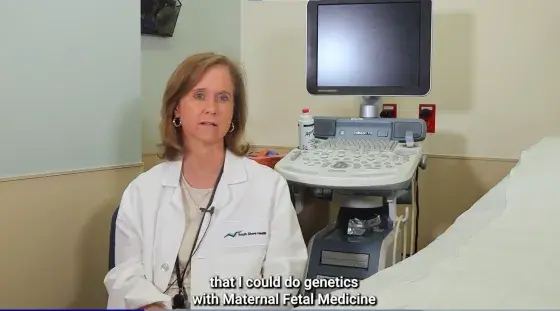
Meet Dr. Barbara O'Brien, Maternal Fetal Medicine and Genetics
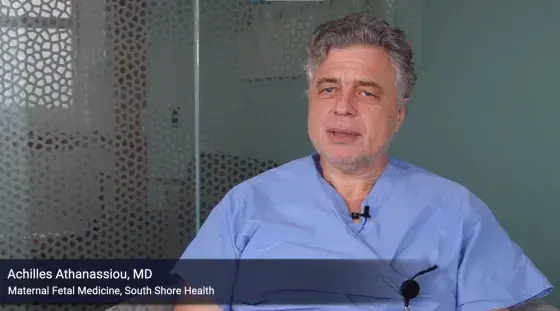
Meet Dr. Achilles Athanassiou, Maternal and Fetal Medicine
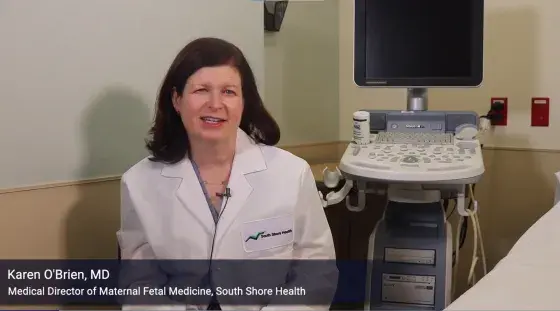
Meet Dr. Karen O'Brien, Medical Director of Maternal Fetal Medicine
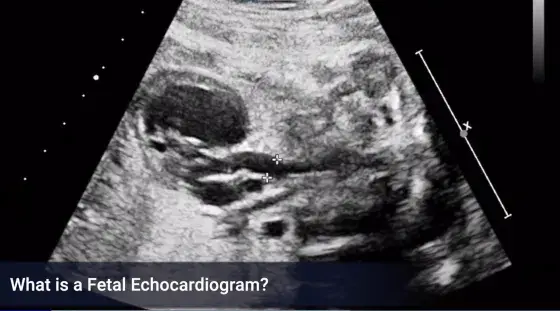
What is a fetal echocardiogram?
Your ultrasound examination is performed in two parts. The initial examination is performed by a certified sonographer with advanced training in high-risk obstetrics. The examination includes taking pictures and measurements of your baby. Our sonographer will guide you through the exam and show you the images of your baby, but cannot interpret the scan or disclose any information about the images. The images and measurements will be reviewed and interpreted by a maternal-fetal medicine specialist.
The maternal-fetal medicine specialist may choose to repeat some of the ultrasound examination and then review the findings with you. Any findings will be addressed at the time of your visit.
Your visit to maternal-fetal medicine may include a session with one of our genetic counselors. Genetic counseling provides information regarding screening or diagnostic tests, abnormal screening results, a review of your family history, or counseling regarding your ultrasound. You can reach out to one of our genetic counselors at any time by calling (781) 624-5041.
Your provider’s office may recommend consultation with a maternal-fetal medicine specialist because of concerns regarding a maternal and/or fetal condition. A consultation may involve taking a comprehensive family and medical history, possibly a physical examination, and a thorough discussion.
A fetal echocardiogram, also referred to as a “fetal echo,” is the most common form of ultrasound to evaluate the baby's heart in greater detail than typically performed during a routine ultrasound visit. The examination is performed by a specially trained ultrasound sonographer and the images are interpreted by either a pediatric cardiologist or a maternal-fetal medicine specialist (perinatologist). A fetal echo is usually performed after 18 weeks gestation and a full bladder is not required.
First Trimester Screening
First-Trimester Screening is an early optional non-invasive evaluation that combines a maternal blood screening test with an ultrasound evaluation of the fetus to identify risks for specific chromosomal abnormalities. In addition to screening for these abnormalities, an ultrasound (known as the nuchal translucency) can assist in identifying other significant fetal abnormalities, such as cardiac disorders and other concerns in early fetal development.
Our unit has created a short video about First Trimester Screening. Access your test results via these instructions.
Chorionic Villus Sampling
Chorionic villus sampling (CVS) is a prenatal diagnostic test that involves obtaining a sample of tissue from the placenta to test for chromosomal abnormalities and certain other genetic problems. CVS is usually done between the 11th and 13th weeks of pregnancy. Unlike amniocentesis (another type of prenatal test), CVS does not provide information on neural tube defects, such as spina bifida. For this reason, women who undergo CVS also need a follow-up blood test between 16 to 18 weeks of their pregnancy to screen for neural tube defects.
Amniocentesis
Amniocentesis is a prenatal diagnostic test where a sample of the amniotic fluid is removed through a fine needle inserted into the uterus through your abdomen, under ultrasound guidance. Amniocentesis is usually performed after 15 weeks of pregnancy and tests for chromosomal abnormalities and other genetic disorders.
More High-Risk Pregnancy Information can be found at highriskpregnancy.org.
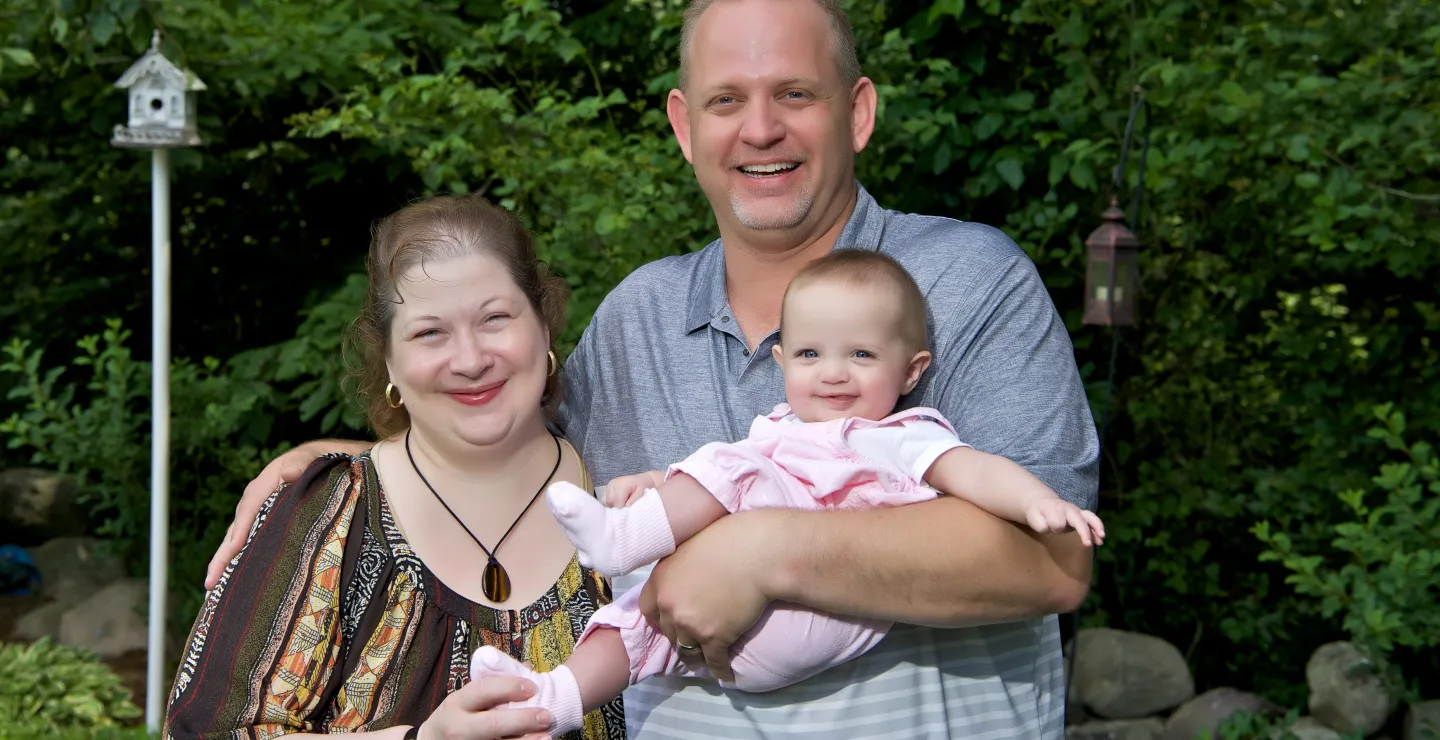
We had everything we needed at South Shore Hospital and there is no need to go to Boston.
News & Events

Are You Counting Your Kicks? The Benefits of Monitoring Fetal Movement During Pregnancy
Are You Counting Your Kicks? The Benefits of Monitoring Fetal Movement During Pregnancy

Families Share Down Syndrome Pregnancy Journey with Maternal-Fetal Medicine Program
Families Share Down Syndrome Pregnancy Journey with Maternal-Fetal Medicine Program




